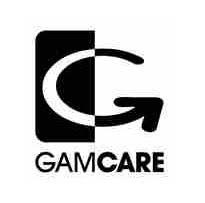When the poker boom occurred in the 2000s, Texas Hold’em swiftly emerged as the most popular variant of the classic game. This was helped by the fact that the iconic 1998 poker movie from John Dahl, Rounders, and the Main Event at the World Series of Poker used Hold’em. The game translated well to online poker rooms because although players couldn’t see one another, they could make an educated guess about what people might be holding based on the cards in the center. As internet poker grew in popularity, more options came about. One of the biggest other strains to have emerged is Omaha.
Both Community Games
Texas Hold’em shined as the number one variant of poker due to its simplicity, and the fact that players could easily grasp the rules of the game in a matter of minutes. The fact that Hold’em is a community variant of poker, in which five cards are dealt in the middle of the table and shared by all the players, means that even beginners can get an idea of which hands they could be up against. They can deduce whether they are holding the nuts, or what their opponent could have that would beat them.
When online poker sites became ubiquitous, operators had to offer different games to get the edge over their rivals. Players sought out other strains of poker for a change from Hold’em but also as a way to improve. Omaha became the second most popular variant because it is so similar to the number one game. It features five community cards as well, but the main difference is the fact that players receive four hole cards rather than two. Another factor which sets it apart is the fact that players must use two hole cards and three from the table to make a hand. This leads to much more deep thought and analysis during the game.
How Could Other Casino Games Follow Suit
Developers who want to introduce new games to rival powerhouses in their respective sectors need to look at what worked for Omaha. The card game has enough similarities to attract a Hold’em crowd, but also brought in new features to keep them engaged. A lot of the most successful games of all time have only had minor differences from those that came before. For example, Pokémon Go had all the characters from the originals but gave players a brand new experience at the same time.
At online bingo industry, this has been seen with hybrid games like Slingo Berzerk, which is a combination of slots and bingo. Titles like these appeal to players of both genres, while offering a change from the originals. For online casino players, there are modern versions of classic table games like roulette and blackjack. These come in the form of speed roulette and multi-hand blackjack, and provide an intriguing twist on the popular games.
Omaha has been successful because it offers something of a twist on Hold’em, but also gives players a chance to hone their skills in both games. This has also been seen with Slingo and speed roulette. Developers who want to make a successful new title should follow in the footsteps of these games by staying true to what came before. However, they need to try to offer a brand new experience at the same time.





